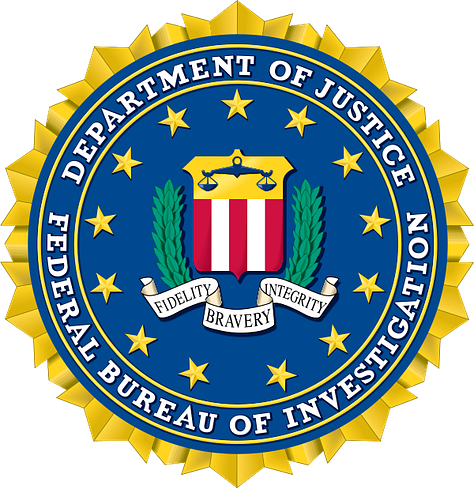Will one good thing come out of Trump's presidency--the truth about Covid origins?
The new CIA director reveals that his agency favors the "lab leak" hypothesis, and Vanity Fair publishes important new details about why the FBI thinks so too.



Before “Words for the Wise” went on hiatus for more than a year (we are now back!) one of its major focuses was the debate over the origins of Covid-19. This made sense, since I have been a science journalist for nearly 50 years (25 of those as a correspondent for Science magazine) and often covered infectious diseases.
In a number of articles posted here, I tried to keep readers updated on the latest evidence—not an easy task given the extreme and very unfortunate politicization of the scientific debate. (I did a whole piece on just that subject for Truthdig; while it is now out of date, I think its basic points are still very valid.)
The posts in this newsletter included critiques of the role of the mainstream media in skewing the scientific debate, including its coverage of the scientifically unsupported attempts by some researchers to push the idea that raccoon dogs had been the intermediate species between bats and humans; I also featured the work of an expert in Bayesian statistics which concluded that the odds were greatly in favor of a lab leak explanation for the pandemic.
In yet another post, I critiqued the use of the term “conspiracy theory” and how it can often be used dishonestly to suppress discussion of important issues, including of course the origins debate.
During the Biden administration, one might have thought it would be fairly easy for those who had a political interest in suppressing the lab leak hypothesis to do so. But in reality, the debate continued to rage, and proponents of the hypothesis held their ground—especially in the realm of public opinion.
Indeed, the Biden administration was so unsuccessful in damping down the debate that the then president, as well as a unanimous Congress, finally passed legislation in March 2023 to declassify as much as possible of the evidence from U.S. intelligence agencies on the origins question. Unfortunately, that did not happen, which I will discuss below.
But there are already signs that the incoming Trump administration might make these intelligence files available to reporters and the public. A key event, which largely got lost in the media blitz over Trump’s inauguration and ascent to office, was the revelation by incoming C.I.A. director John Ratcliffe that the agency had earlier developed a new assessment that favored the lab leak hypothesis.
During the early days of the Trump administration, Ratcliffe was the director of national intelligence, and even back then he made his views clear that a lab leak out of the Wuhan Institute of Virology was the most likely explanation. But the C.I.A.’s new assessment, which is also shared by the FBI and the Department of Energy (DOE), was developed during the last days of the Biden administration, making it more difficult to brand it as a politically motivated exercise.
Not all of the intelligence agencies agree that a lab leak is more likely. But it needs to be emphasized that each agency has its own strengths and specializations. The FBI, for example, has a highly regarded scientific forensics team; the DOE has a wide international network of laboratories with contacts among scientists around the world; and the C.I.A, at least in its good days, has a network of human intelligence that provides raw information to its bevy of analysts.
This past week, journalist Katherine Eban, who writes often on Covid origins for Vanity Fair, published a new report about how the FBI arrived at its long-held view that a lab origin was most likely. I cannot recommend it too highly. I will discuss some of its points here, and then leave readers to explore the article on their own.
The central character in Eban’s story is Jason Bannan, who “served as the senior scientist of the FBI’s forensic response section” within the agency’s laboratory division for 11 years. As Eban explains:
“He retired in 2022, and he spoke to VF in his capacity as a concerned citizen, not as a representative of the bureau. A portion of the FBI’s analysis is based on classified materials, but over numerous months he shared exclusively with Vanity Fair some of the open-source information that played a strong role in the bureau’s assessment. In December, he was featured in a Wall Street Journal article that enumerated deep divisions within the intelligence community but did not delve into the reasons for the bureau’s assessment.”
Eban relates how the FBI closely scrutinized information about what the scientists at the Wuhan Institute of Virology, led by famed virus hunter Shi Zhengli, had been up to in the years preceding the pandemic, including the thousands of samples it had collected that were related to SARS-CoV-2, the virus that causes Covid-19.
“The FBI found that Shi’s researchers, in their publications, were not candid about the inventory of viruses in their possession and the true breadth of their work, which was conducted in labs with a low biosafety level. The intelligence community also determined that, in the autumn of 2019, three of Shi’s researchers fell ill with COVID-like symptoms,” Eban wrote.
Two of these three researchers later insisted to Science reporter Jon Cohen that they had not become ill, but neither Cohen nor any other reporter I am aware of ever pursued the matter further. Importantly, Eban cites government sources to the effect that classified intelligence confirms that the illnesses did take place. If so, then we might already know when and where the first human infections actually occurred.
There are a lot of details in Eban’s report, especially about how a bat virus from Yunnan Province may have made its way into the Wuhan lab and eventually into humans; I will leave it to readers to benefit from her detailed reporting. But as Eban points out, the March 2023 law that required intelligence agencies to declassify their files was never actually put into force. Instead, the then director of national intelligence, Avril Haines, released a five page summary that was inconclusive on the origins question.
That has left journalists following the Covid origins trail with the hard slog of filing Freedom of Information Act requests and then having to engage in arduous litigation against the agencies that are still refusing to release the intel.
Will the Trump administration now follow the 2023 law and release the intelligence files on Covid origins, with allowable exceptions for details that might compromise sources and methods? We shall see, although Ratcliffe’s announcement of the C.I.A.’s changed assessment—which the Biden administration did not bother to tell us about—might be a good sign. Also, as Eban’s story relates, Senator Rand Paul has subpoenaed 14 government agencies for records concerning U.S. funding of the Wuhan lab, and Tulsi Gabbard, who is now the director of national intelligence, has promised to look at the situation.
It does not make me happy in the least that we have to rely on right-wing government officials, whose devotion to truth in other matters is highly questionable, to help us get at the critical question of the origins of a pandemic that has killed one million Americans and so many others around the world. Perhaps if the Democrats had done their job in ferreting out the truth, they could have told us themselves.
**********************************************************************************************************
To share this post, or to share “Words for the Wise,” please click on these links.





It's possible that something was released or sprayed in Wuhan institute of virology and Wuhan Central Hospital. What they're not telling you is that Michael Callahan is the number one suspect in the world.